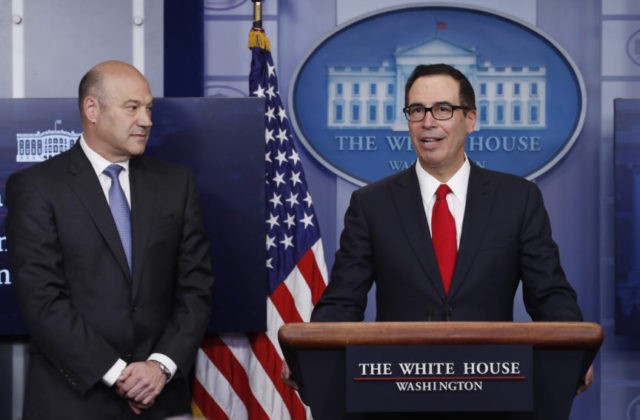Robert Shapiro thinks people are missing the point of Donald Trump’s tax cuts.
As Deputy Secretary of Commerce, Shapiro was one of the prime-movers behind the economic policies of Bill Clinton’s administration. He’s not a fan of the Trump administration, describing in an interview with the New York Observer the Trump administration’s claims that the tax cut will pay for itself with economic growth as “incorrect or nonsense.”
But he thinks many critics of Trump’s tax plan are off-base when they complain about its potential to raise budget deficits. A higher deficit, particularly in the short-term, may be needed to hold off a recession. According to the interview:
One of the main charges leveled against the proposal, particularly by deficit hawks fearing a growing national debt, is that Trump’s tax plan will increase deficit spending.
Shapiro maintained that borrowing money is, in fact, the key driver of the plan: “The proposal has been criticized because it’s not paid for. In my view, that’s the whole point of the proposal.”
He sketched out a compelling case: The U.S. economy grew less than 1 percent in the first quarter. In July, the current expansion will be nine years old, which will make it the second longest economic expansion in American history. He estimates that the likelihood that this expansion will continue until the end of Trump’s term is very slim. And, the odds of the expansion continuing through the end of Trump’s term without stimulus are, in Shapiro’s view, “virtually nil.”
“One of the main points of this proposal is stimulus for the 2018 election,” said Shapiro, who also served as an adviser to the International Monetary Fund and former British Prime Minister Tony Blair. “The only form of stimulus that Republicans will accept is tax cuts—preferably for high income people and businesses.”
In other words, tax cuts that are “paid for” won’t do much to stimulate the economy. They just trade tax cuts in one area for tax hikes in other. To be truly stimulative, tax cuts should raise budget deficits. And since it is likely that the economy will contract in the not-so-distant future, implementing a stimulative tax cut is wise.

COMMENTS
Please let us know if you're having issues with commenting.